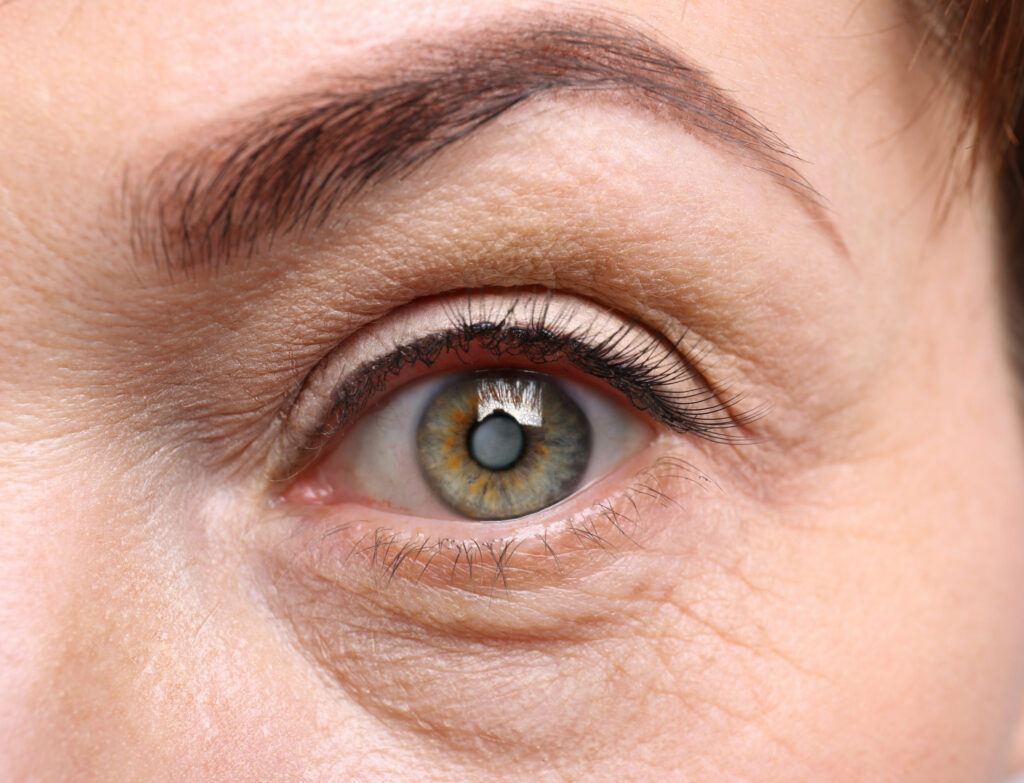Made Stress-Free Reliable Hassle-Free Convenient Pocket friendly
Request a call back
The surgery you need is
just a click away


21K +
Consultations

1180
Surgeries

100+
Partner Hospitals

10000+
Hassle-free Consultation

5000+
Smooth surgeries

500+
Expert Doctors

100+
Trusted hospitals

Affordable Cataract Surgery in Pune
Reasonable and most affordable Cataract surgery in your city, Pune, by the best ophthalmologists. With Aapkacare Health, we will make it easy for you to attain the surgery with the best femtosecond laser-assisted cataract surgery (FLACS) to remove your cataract. We will provide medical advice, clinical support, and healthcare solutions.
- 30 Min Procedure
- Free Pick Up & Drop
- Same Discharge
- Complete Insurance Support
- No Cost EMI
About Circumcision
Doctors & Hospitals
Why aapkacare
FAQ
What is a Cataract?
Cataract is a medical condition that affects the eye’s lens due to the building up of proteins, making them cloudy and opaque. Our eye’s lens is a transparent disc that allows the light to pass through it and focus on the retina. When a cataract forms, it obstructs the passage of light, which leads to blurred and distorted vision. People with cataracts often find it difficult to see at night due to unclear vision.

Identifying the Signs of Cataract
Blurred Vision
One of the early signs of cataracts is gradually blurring vision.
Increased Sensitivity to Glare
Eyes become more sensitive towards bright lights including sunlight, car headlights, or indoor lighting.
Difficulty Seeing at Night,
Impairment of night vision. One might find it difficult to see clearly in low-light conditions, You can also experience halos around the lights.

Faded Vision
Colors may appear less vivid or faded.
Doubled Vision
Cataracts can cause double vision or multiple image formation in one eye.
Poor Depth Perception
Due to blurring vision, the depth perception ability of the eye is affected, making it difficult to judge distances.
Understand the Causes of Cataract

Aging
Aging is the most common cause of cataracts. The proteins in your eye’s lens can clump together as you age, causing cataracts.

Ultraviolet (UV) Radiation
Prolonged and excessive exposure to UV radiation from the sun.

Uveitis
Inflammation of the uvea (the eye’s middle layer) can increase the risk of cataracts.

Smoking
Smoking and exposure to smoke can increase the risk of cataracts.

Diabetes
People with diabetes have a higher risk of developing cataracts. This is due to changes in the eye’s lens because of increased sugar levels.
Eye Injuries
Injuries to the eyes can increase the risk of developing cataracts.
Nuclear cataracts form in the central (nucleus) of the eye’s lens. They are the result of ageing. In nuclear cataracts, the lens of the eye often turns yellow or brownish which leads to a gradual reduction in near vision and increased glare sensitivity.
These are the type of cataracts that develop in the cortex of the eyes, which surrounds the central nucleus. They are characterized by white, wedge-like opacities that start on the outer edge and gradually grow towards the centre. Cortical Cataracts can cause glare and halos around lights leading to difficulties and night vision problems.
Posterior subcapsular cataracts form on the back surface of the lens of our eyes. In the posterior cataract, a small opaque spot develops which gradually increases in size. This type of cataract grows faster than cortical and nuclear cataracts. These cataracts are common in younger individuals and can be associated with medical conditions like diabetes and the long-term use of corticosteroid medications.
These types of cataracts are present by birth or develop during childhood. The main reason behind the development of Congenital Cataracts can be genetic factors, infections during pregnancy, or other developmental issues. Prompt treatment is crucial in congenital cataracts to prevent vision impairment or vision loss.
Traumatic cataracts are the result of eye injuries such as blunt force trauma or penetrating injuries. They can occur at any age and proper surgical assistance is needed in this case to cure it.


Our Experts Explain
- HOW
- WHAT
- WHEN
How do cataracts form?
We have a natural lens inside our eyes. The lens bends the light that comes into the eyes and helps us see. Cataracts develop when ageing or injury changes the tissue that makes up the eye's lens. Proteins and fibres in the lens break down and clump together, causing vision to become blurry or cloudy. Other eye conditions, past eye surgery, or medical conditions such as diabetes can cause cataracts.
What is Cataract Surgery?
Cataract surgery is a highly effective medical procedure to remove cataracts and cure an individual's vision. The blurry and cloudy (cataract-affected eyes ) lens is replaced with an artificial intraocular lens (IOL). Local anaesthesia is used to ensure that the patient is pain and discomfort-free throughout the process. The surgeon makes a small incision in the cornea; after that, the surgeon can access and treat the cataract-affected area. Cataract surgery is considered the safest and most successful surgery procedure, with a high rate of satisfaction among patients.
When does cataract surgery become a necessity?
Cataract Surgery becomes necessary when the clouding of the eye's natural lens significantly impairs a person's vision and interferes with their daily activities and quality of life. The necessity of surgery also depends on visual Symptoms, overall patient health, and other health symptoms. If you have cataracts or are experiencing vision blurriness, it's essential to consult an eye doctor near you, for a comprehensive eye examination. At Aapkacare, our doctors help you with the best eye consultation to make your eye vision more clear and uncloudy.
Benefits of Laser Treatment
|
EXPERIENCE
|
OPEN SURGERY
|
LASER SURGERY
|
|---|---|---|
|
CUT
|
LONG
|
MINIMAL
|
|
PAIN
|
PAINFUL
|
MILD
|
|
STITCHES
|
MULTIPLE
|
MINIMAL
|
|
HOSPITAL STAY
|
LOGN
|
ONE DAY DESCHARGE
|
|
RECOVERY
|
SLOW
|
FAST
|
There are two kinds of approaches that are used by our experienced and skilled surgeons at Aapkacare Health to perform the best cataract surgery in Pune
Micro-Incision Cataract Surgery (MICS): As the name suggests Micro-Incision Cataract surgery, is a specialized technique in which a small incision is made by the surgeon using microsurgical instruments to remove the cataract and replace it with an intraocular lens (IOL). It is the safest procedure with fewer postoperative complications and quicker healing.
Femtosecond-Laser-Assisted Cataract Surgery (FLACS): In FLACS surgery, cataract doctors use lasers to operate and treat the cataract. It is a modern and advanced technique used in cataract surgery to enhance precision and improve surgical outcomes. It utilises a femtosecond laser which emits ultra-short pulses of light that breaks the lens, which in turn is then sucked out through the phacoemulsification process. The IOL is then placed in the vacant lens cavity with the help of an additional probe.
Benefits of Cataract Surgery
- Improved Vision: The most significant benefit of cataract surgery is improved vision.
- Treatment of Other Eye Conditions: In some cases, cataract surgery can help manage other eye conditions, such as glaucoma or diabetic retinopathy by improving the clarity of the eye’s natural lens.
- Relief from Glare and Halos: After the treatment of cataracts one gets rid of glare sensitivity and halos around the light.
Enhanced Color Perception: Many individuals notice an improvement in their vision quality and vividness of colours.
- Geographical Location: The cost of surgery may vary from place to place. In some places, it can be cheaper while at some it can be higher.
- Type of Surgery: The specific surgical technique used can impact the cost of surgery. PHACO is less expensive than FLACS.
- Postoperative Medications and Follow-up Visits: Patients may need to take proper care of the treated eye for a certain period of time and have to follow the medications properly.
Complexity of the Case: The complexity of the cataract surgery can affect the cost. Complicated cases may require more time and resources leading to higher fees.
What Happens Before a Cataract Surgery
Preoperative Evaluation: Before the surgery, an ophthalmologist performs a brief eye examination to assess the cataract’s size, location, and impact on vision.
What Happens During the Procedure
After evaluating the medical condition of a patient and their medical history the cataract doctor then proceeds further.
- Anaesthesia: Cataract surgery is performed using local anaesthesia to ensure the comfortable and painless treatment of the patient.
- Incision: The surgeon makes a small incision in the cornea that clears the front part of the eye and makes the infected part accessible for treatment.
- Capsulorhexis: After making the incision, the surgeon creates an opening in the front of the eye.
- Phacoemulsification: An ultrasound probe breaks up the cataract into tiny fragments. These fragments are then suctioned out of the eye.
- IOL Placement: After removing the cataract, the surgeon inserts an artificial intraocular lens into the empty lens capsule.
Wound Closure and Recovery: The incision made at the beginning stage of surgery does not require stitches. It self-heals naturally. After the surgery, the complete healing and stabilization of the vision can take a few weeks.
The recovery process after cataract surgery is typically relatively quick and straightforward. Most patients experience improved vision within a day or two after surgery, but it is important to follow post-operative care instructions to ensure smooth recovery.
- Follow the surgeon’s instructions regarding the use of the prescribed regimen.
- You can resume your daily activities but you should avoid heavy activities like lifting for a week or as advised by your surgeon.
- Avoid rubbing your eyes.
- Protect the eye from dust, wind and bright sunlight by wearing sunglasses.
Your surgeon will schedule follow-up appointments to monitor your progress. These appointments are essential for ensuring that your eye is healing properly. During these visits, your surgeon may make adjustments to your eye drops and their doses and assess your vision. In some cases, you may still need reading glasses or corrective lenses for certain activities, depending upon the type of IOL used during surgery. So after your cataract surgery, these follow-up appointments are very crucial and can prevent you from future complications.
5) Follow-Up appointmentsYour surgeon will schedule follow-up appointments to monitor your progress. These appointments are essential for ensuring that your eye is healing properly. During these visits, your surgeon may make adjustments to your eye drops and their doses and assess your vision. In some cases, you may still need reading glasses or corrective lenses for certain activities, depending upon the type of IOL used during surgery. So after your cataract surgery, these follow-up appointments are very crucial and can prevent you from future complications.

About our Doctors & Hospitals
At Aapkacare Health we provide well-experienced and highly qualified doctors to give you the most accurate diagnosis and health care advice.

Consult with the most experienced surgeons in Pune!

Dr.Mahender M
18 years experienced

Dr.Balakumaran
15 years experienced

Dr.Sudhakar
9 years experienced

Dr.Vijay Bhaskar
11 years experienced
Find the Best Hospitals in Pune

Varam

VSR Hospital

Sivam Ortho and Speciality Hospital

RR

STN
Our Aim is to keep you healthy
Receive Expert Care
Get the best medical assistance from skilled doctors assigned by us.

Zero Paperwork
We are here to make your treatment quick and easy, we will take care of all the paperwork.

Hassle-Free Insurance
Fast insurance approval directly from your insurance provider.

Postoperative Care
We provide you with recovery assistance and multiple postoperative consultations.

Cost effective treatments
We will find you the most affordable prices for all kinds of medical treatments. A price that fits in your budget and is best for you. Call us today and get a personalized cost breakdown.

Free Pick-up & Drop
We’ll arrange your transportation on the day of your surgery

Affordable Payment Plans
Pay for your care with flexible monthly instalments

Are you worried about the cost of cataract treatment?

Your journey with AapkaCare Health

